An astrologer told Ramesh Menon that he was increasingly having worried parents asking him about the future of their children who were showing serious behavioural changes like lack of tolerance towards others, shunning social interaction, and even violent behaviour.
They were worried because they had never ever seen such traits in their children before the pandemic.
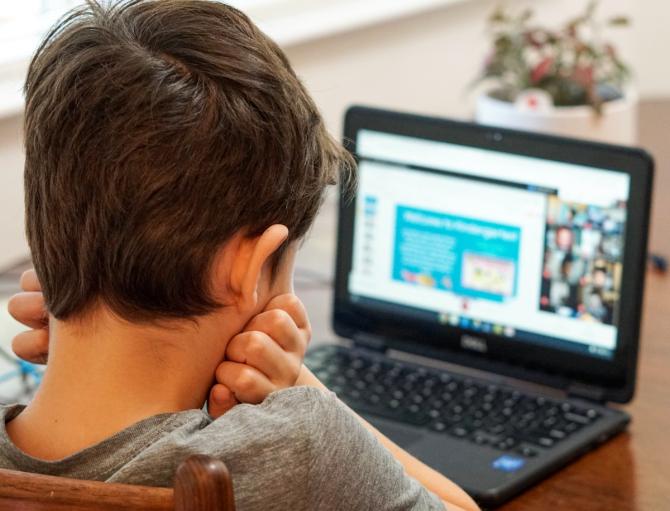
During the pandemic, students found their otherwise vibrant world crumbling as they found themselves limited to studying from home.
Many lost the art of conversation. Many found it difficult to adjust to others as their tolerance limit reduced. Teachers noticed a new lethargy in their students.
Even after offline classes started, the attention span continued to be thin and short. Students found it difficult to comply with the set routine of school.
Lack of physical activity, binge eating and watching television had resulted in obesity, muscle spasms and rigidity. Children were also suffering from Vitamin D and calcium deficiency as they were almost constantly indoors for nearly two years.
The sense of isolation and lack of physical interaction with friends has resulted in mental health issues among many youngsters.
An astrologer from the National Capital Region told me that he was increasingly having worried parents asking him about the future of their children who were showing serious behavioural changes like lack of tolerance towards others, shunning social interaction, and even violent behaviour.
They were worried because they had never ever seen such traits in their children before the pandemic. He said that very small children who had never seen a school and had only experienced online education were uncomfortable going to schools when they reopened recently.
Online education has neither been authentic nor wholesome.
Students found they gained little in terms of learning as attention spans plummeted.
They pined for offline classes where they could interact with their peers, have meaningful discussions and debates and get their teachers to guide them at every step.
Online teaching, with all its technological advantages, could not compete with traditional offline teaching as the sense of sharing and camaraderie that is crucial to the children's mental and emotional development was missing.
During offline classes, the students also soaked in varied experiences in the classroom. Their peers contributed to the broadening of their perspective and helped them see other points of view.
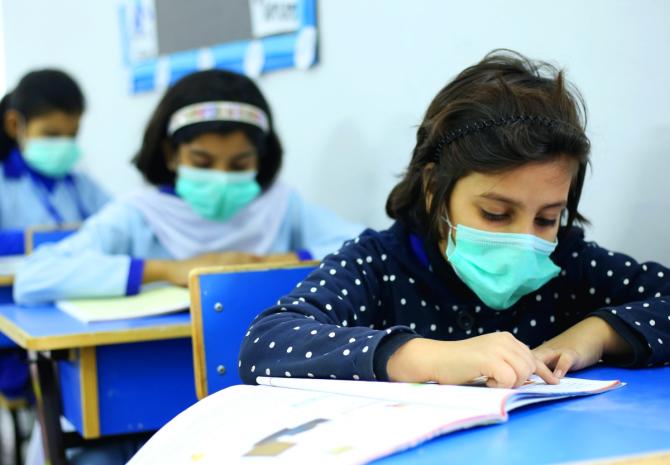
Teachers also got a raw deal. They felt they were talking to tiles as students switched off their cameras.
There was a distinct disconnect between students and the teacher. There were few questions and discussions were rare.
Sometimes, when the teacher questioned a particular student, there was no answer as the student was not physically present. He or she had logged in to meet the attendance requirement and was then doing other things.
One cannot blame the students as staring at a laptop for six to seven hours a day can be torturous.
The screen time was taxing their eyes. Sitting all the time was resulting in bad ergonomics, leading to backache and fibromyalgia pain.
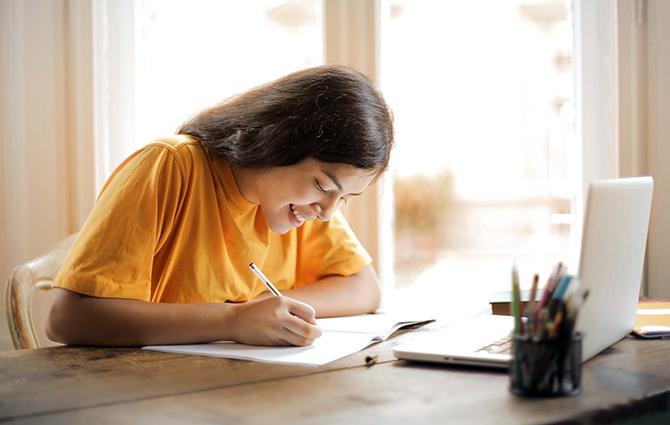
An education ministry report released late last year indicated that between 40 to 70 per cent of school-going children in Gujarat, Madhya Pradesh, Bihar, Andhra Pradesh, Uttarakhand, Assam and Jharkhand did not have access to digital devices.
As a result, they have been denied an education. It is frightening to estimate how much they have lost in these two years.
Many poor families invested in one phone as education went digital. But, with multiple children in the household, the others -- mainly girls -- were left out as the male child got the phone.
While there is no formal report yet, there are fears that many girls have permanently dropped out of school.
Many of the children who had digital devices suffered because of power cuts and poor Internet connections. It is quite possible that many of them were sucked into doing jobs to keep kitchen fires burning.
Surveys by the Hindustan Times showed that child labour had increased. So had underage marriages, trafficking of children and marginalisation of migrant child workers.
E-learning definitely has its advantages.
It makes it possible to reach out to faculty abroad for virtual masterclasses and workshops.
A creative writing course conducted in Delhi for the last 10 years by the Sri Aurobindo Centre for Arts and Communication suddenly found global appeal after it went online.
Teachers quickly tried to adapt to the new technology so that they could continue to teach and evaluate their students as exams were also held online.
A 2020 study by the Azim Premji University found that more than 90 per cent of the teachers felt no meaningful assessment of children's learning was possible through online classes.
Its 2021 study showed that 92 per cent of the students from Classes 2-6 had lost at least one specific language ability from the previous year. This included reading familiar words and writing simple sentences based on a picture.
The study found that more than 80 per cent had lost at least one mathematical ability.
In these circumstances, how are they going to make up for lost learning?
There is, clearly, cause for worry. Many fear they may never be able to catch up. It is only in the coming years that we will know what damage the pandemic has done to education.
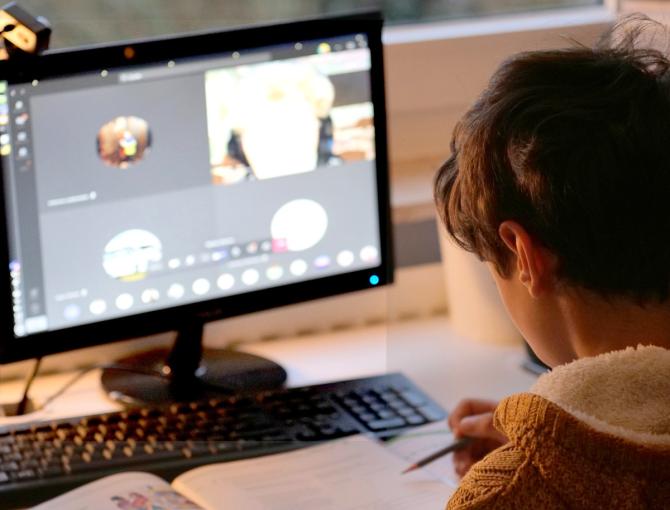
For now, look at the damage the last two years have done to students and teachers.
Exams were a farce. Institutions conducted them just for the sake of compliance. Everyone passed. Many of them with flying colours. No prizes for guessing why.
There were instances where students got 100 percent marks in Multiple Choice Questions, thanks to the Internet. All they had to do was to tick the right answer out of the alternatives suggested.
Actually, there was no exam in the real sense as the unrealistic marks eloquently show.
Teachers will tell you how students did extremely well as they just copied the right answers without understanding them.
Offline exams are a must as it reduces the unethical practices that were rampant during online exams, where many did not think twice before copying from textbooks or using the Internet to find the right answers.
The whole point of learning holistically and gaining an in-depth understanding of concepts and ideas was lost.
It is definitely going to impact post-graduate and management school students when they start looking for jobs as employers will find them wanting. And, while many have found employment in recent weeks as the economy has started opening up, the real challenge will be retaining those jobs.
Imagine the plight of an engineering or medical student who has studied online for the last two years. Or is doing a course where practicals are crucial to understanding concepts.
There has been a definite loss of learning. Any teacher will tell you that. Students agree as well.
The offline mode will restore the sanctity of education but we cannot pretend that all is well now. Much needs to be done to repair the damage caused in the last two years.
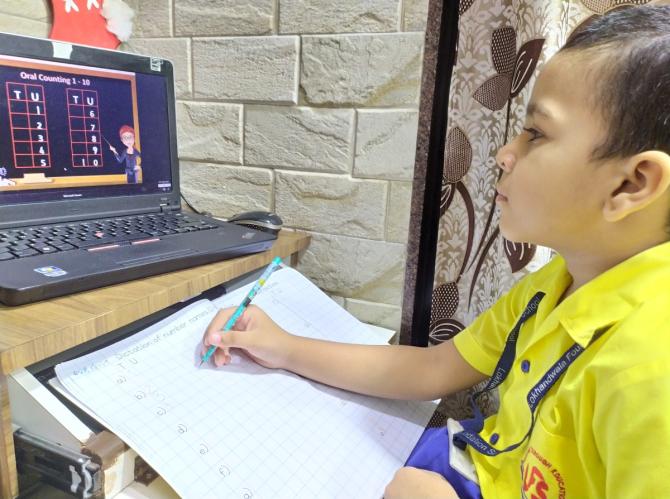
The United Nations kept repeating during the pandemic that schools should be the last to shut and the first to open.
But, in India, different state governments acted differently depending on the political exigencies of the moment. They ignored the fact that education needs to be above political considerations.
A UNESCO report prepared during the pandemic made the following recommendations:
- Improve terms of employment of teachers in both public and private schools.
- Increase the number of teachers and improve their working conditions.
- Recognise teachers as frontline workers.
- Provide teachers with meaningful information and communication technology training.
The report also revealed that most teachers felt integrating technology with education during the pandemic was time-consuming and they lacked professional skills required to do so effectively.
The Economic Survey 2021-2022 said that rural children had shifted from private schools to government schools during the pandemic as it is mostly free.
This is a clear signal that the government needs to help government schools with additional financial resources, teachers, classrooms and learning materials so that they can effectively teach the new students they now have.
The survey also said that the academic disruption since the last two years, and the switch to the online mode of education, had aggravated the existing digital divide and access to education.
The pandemic has given us a great opportunity to improve our battered education system that is already wanting in many ways.
It is a wake-up call.
Ideally, the government needs to:
- Recognise that education -- just like the economy and health infrastructure -- has been seriously impacted and needs immediate attention.
- When the government talks about how opening up the economy is a crucial part of the process of getting back on track, it must also talk about education.
- Track down dropouts and cajole them back.
- Evolve methods to make up for lost time.
- Find a way to reinforce concepts, which are not strong due to online education.
- Strengthen the digital reach as hybrid systems will continue.
- Get education to become a part of the national conversation so that efforts are made to fix gaps.
- Create a strategy to recover the two years of learning that has been lost.
Unless this is done systematically by every state, students will lose the opportunity to learn, maybe forever.
At the moment, very little is happening on this front. We cannot let our children be victims of this tragedy.
Ramesh Menon is an award-winning journalist, educator, documentary filmmaker, corporate trainer and author of Modi Demystified: The Making Of A Prime Minister.
Feature Presentation: Rajesh Alva/Rediff.com











 © 2025
© 2025